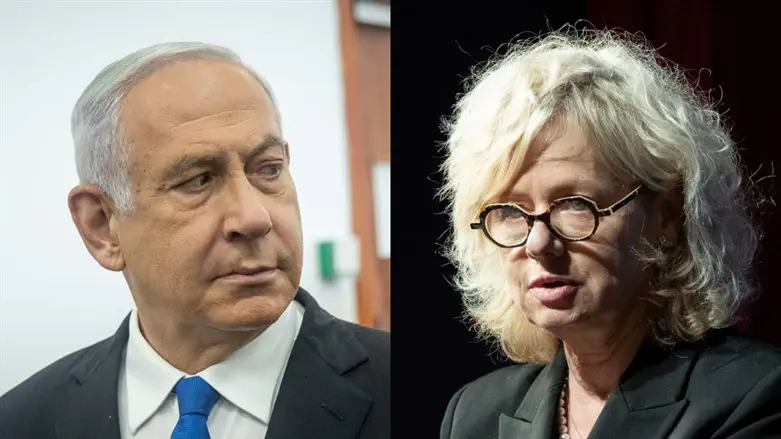
Prime Minister Benjamin Netanyahu told NPR in an interview on Thursday that he will not replace Attorney General Gali Baharav-Miara, but does expect to reappoint Shas chairman Aryeh Deri to a senior position in his government.
"It's not even on the table and it won't happen," Netanyahu said of the possibility of removing the Attorney General from her post.
The Prime Minister also rejected any notion that the government’s judicial reform will make it easier for him to outright dismiss his own trial.
"It's completely false. There's no connection between this judicial reform, which is very broad, and my trial," he stated.
The Supreme Court used the reasonableness standard in January when it ruled that Deri can no longer serve as Interior and Health Minister due to his conviction of tax-related offenses.
Asked directly by NPR if he will reappoint Deri now that the Knesset has passed the law reducing the use of the reasonableness standard, Netanyahu responded, "Well, you know, it depends what happens, of course, with the legislation, we have to see. But if it stands, I expect it to happen."
Netanyahu denied that the legislation impacted Israel's national security, despite public concerns from defense officials
"I don't think it's affecting our national defense, Israel is very strong," Netanyahu said. "There's no real, I would say, no real detraction or reduction in our ability to, to meet our security challenges."
Asked how the government will proceed with the plan to overhaul the judiciary, Netanyahu replied, “Now that we've passed [the first law] and we have the votes to continue legislating, maybe now we'll be able to get some buy in from the opposition, and I'm prepared to do that. I think we should just sit down. We have about three months, four months. We should just sit down, work out the entire judicial reform, find a happy middle.”
On why judicial reform is needed, the Prime Minister said, “People agree that the balance between the three branches of government has been taken off the rails in the last 20 years, and people want to bring it back. What does it mean bring it back? It means that that neither one of the three branches of government has that overwhelming dominance over the other three. That assures democracy. ... [Over] the last 20 years, the Supreme Court has aggregated for itself the powers of the judiciary, executive branch and the legislative.”

